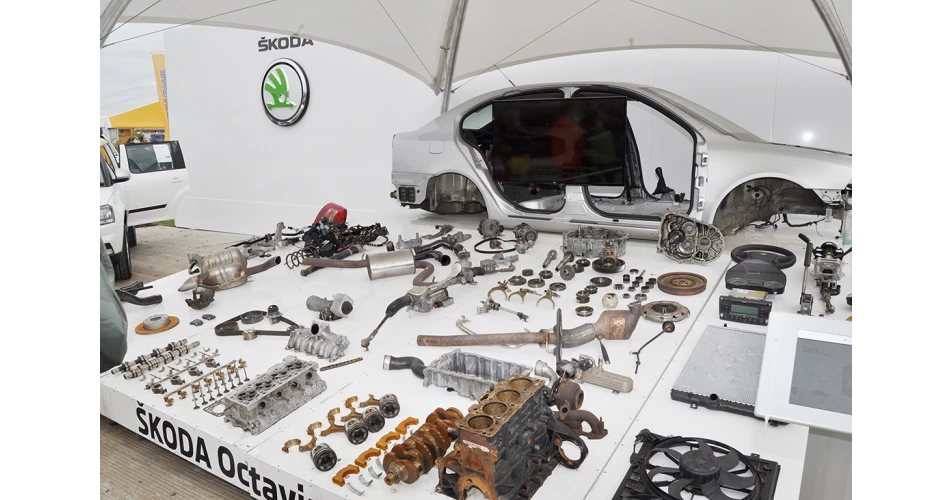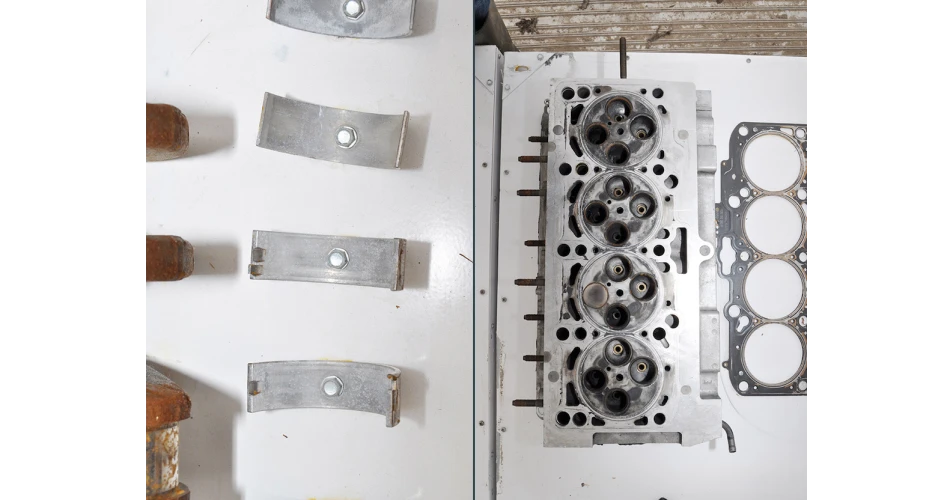At the National Ploughing Championships on the SKODA stand, there was a display of the parts taken from a SKODA Octavia, after it had been driven on regular roads for 500,000 kilometres.
The disassembly of the vehicle confirmed that it was well-preserved. The engine's bottom end lacked visible or measurable wear and tear. The block was worn only in the lower part of the cylinders, while the connection rod bearings of the crankshaft did not show any wear. Even the pistons looked like new. Although the oil changes were performed in "long-life" service intervals of 30,000km, no carbon build-up was found, and the suction basket was clean.
Two of four injection units did show reduced amount of fuel injected after maximum load, and all four injectors did have decreased opening pressure. The biggest problem concerning the engine's function was the crack in the cylinder head. However, it didn't interfere with the water passage.
Taking apart the transmission did not reveal any measurable wear of the cogs, bearings or synchro rings. The cause of uneven clutch action was the lack of lubrication on the grooved connection of the input shaft and friction disc. The suspension was in a great condition mechanically, except for a few details – the shaker rig test did reveal a torn bushing. Rust analysis with a high-quality endoscope did reveal one rocker panel to look like new inside, while the other was corroded only in places where it wasn't preserved by protective wax.
Had it not been taken apart, this ŠKODA Octavia could very well remain in reliable service for a few more years without significant expenses. The main components, such as engine, exhaust or transmission, were still original. Overall condition of the bodywork was good. Even though this Octavia spent a large part of its life driving through the construction sites, it remained in remarkably good condition with regular servicing.
 The parts removed from the Octavia were all on display.
The parts removed from the Octavia were all on display.
 The bearings, pistons and head were all in good condition
The bearings, pistons and head were all in good condition